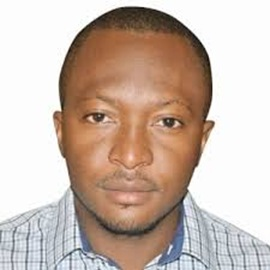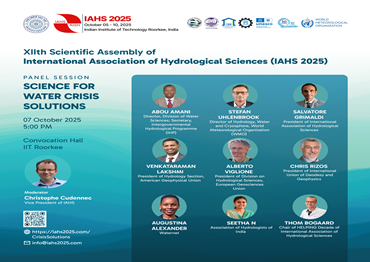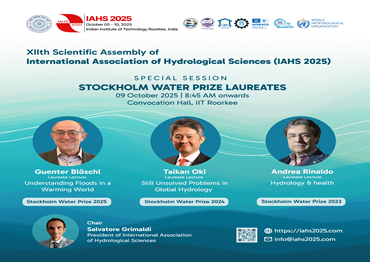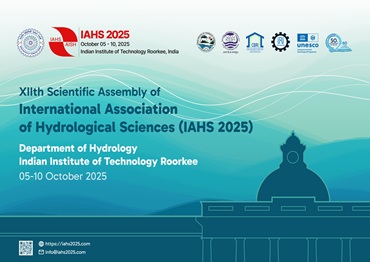Young Water Champions for a Green, Prosperous, and Peaceful Sahel
Side Event
Young Water Champions for a Green, Prosperous, and Peaceful Sahel
About Event:
Wednesday, October 08, 2025 (17:30-19:00) Timing (IST)
The Sahel faces interconnected challenges of security, development, and climate resilience, yet holds immense potential as a land of opportunity. According to the UN (2024), the region is endowed with vast renewable energy potential and some of Africa’s largest aquifers, positioning it as potentially one of the world’s richest regions in human, cultural, and natural resources. With more than 80% of jobs dependent on water resources and the world’s youngest population, sustainable water management is critical to averting escalating conflicts and migration. Climate change, primarily transmitted through the water cycle, exacerbates devastating floods and droughts. However, innovative water storage solutions could mitigate extreme floods, create strategic reserves, and unlock the largely untapped potential of the Sahel’s groundwater to foster climate resilience, rural development, agriculture, pastoralism, economic growth, and food security.
India, despite a land area ten times smaller than Africa, exemplifies how groundwater management can reduce rural poverty, ensure food sovereignty, and drive economic growth and demographic transition. Its rice exports bolster African food security, while solar irrigation programs like IWMI-SoLAR, PM-Kusum, and national groundwater management scheme Atal Bhujal Yojana demonstrate sustainable groundwater use, offering a model for the Sahel. UNESCO defines hydrology as the study of the water cycle and its exchanges between the atmosphere, land, and subsurface. Hydrologists, as integrators of this cycle, are pivotal in building community resilience by leveraging technologies (e.g., AI, remote sensing, IoT, solar pumping) and local knowledge, collaborating with disciplines like agronomy, economics, and climatology to transform the Sahel into an ecosystem of peace, prosperity, and food sovereignty.
Despite their critical role, hydrologists are often perceived as detached scientists. The IAHS’s HELPING initiative emphasizes their engagement with communities to deliver essential services. The Sahel’s underutilized water resources—surface, groundwater, atmospheric, urban, green, and virtual waters—represent a key lever for prosperity and peace. This side event aims to launch the Sahel Young Water Champions, a multidisciplinary network of young leaders (scientists, engineers, farmers, economists, etc.) from six Sahel countries (Burkina Faso, Mali, Mauritania, Niger, Senegal, Chad) and Guinea, the region’s water tower. Inspired by M.S. Swaminathan’s transformative work during India’s Green Revolution, this network will drive long-term, sustainable water resource development, transcending short-term political and funding cycles.
This side event will foster a think tank-style exchange on the role of young hydrologists in serving Sahel communities, which aligns with the IAHS HELPING initiative. It will initiate the Young Water Champions network to catalyze actions for prosperity, food security, and sustainable development. Supported by experts from WMO-Hydrohub, UNESCO, IWMI-West Africa, Dakar and Geneva Water Hubs, IAHS and University Cheikh Anta Diop of Dakar (UCAD), the event will be followed by field visits on October 11-14, 2025, as well as meetings and a wrap-up event in Delhi to share insights and discuss possible next steps. These visits will explore conjunctive water management in relation to the nearby Ganges canal as well as adapting Indian hydrological practices—like Atal Bhujal Yojana, PM-Kusum and Amrit Sarovar—for the Sahel, leveraging shared monsoon-driven climatic traits.
Event organizer

Moctar Dembélé
Researcher - Spatial Hydrologist, International Water Management Institute (IWMI)Expert Members:
- Dr. Moctar Dembélé, Researcher - Spatial Hydrologist, International Water Management Institute (IWMI)
- Samba Sow, Hydrologist, Cheikh Anta Diop University of Dakar (UCAD), Senegal
- Ibrahim Nassour, General Director, Hydrogénie Engineering & Consulting, N'Djamena, Chad
- Modibo Coulibaly, Water & Environmental Engineer, Ouagadougou, Burkina Faso
- Rokhaya Ba, Scientific Officer, Global Hydrometry Support Facility (WMO HydroHub), World Meteorological Organisation
- Christophe Bösch, Strategic Advisor to Global, Regional and Basin Water Organisations
- Prof. Ankit Agarwal, Dept. of Hydrology, IIT Roorkee
Focus Group: Researchers, Industry Professionals, Government Organizations/NGOs, Others
Prerequisites: None
Maximum Number of Participants: 100

















